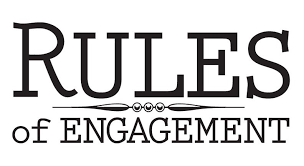There is a lot written about what employers should do to attract the right talent how they should identify talent, interview candidates, make offers etc.
This goes for applicants too. How do they overcome the dreaded Applicant Tracking System (ATS), should they write a cover letter? What’s the best interview advice and how should they prepare.
All of these points are crucial in the job seeking process. But what are the rules of engagement for both parties during this process?
This is something I’ve been thinking about for years and it’s difficult to come to a conclusion. For example:
- Why do employers turn down applicants they have never met based on one element of their CV?
- Why do employers lowball an offer to their preferred applicant?
- Why do applicants neglect to mention other jobs they are in the latter stages of interview for?
- Why do applicants do so little research on the company they’re interviewing with?
Ghosting
In recent times we have seen a number of posts on LinkedIn – in fact it was trending – platforms mentioning that businesses are ghosting applicants. What’s ghosting I hear you say? Ghosting is whereby you hear nothing after your initial job interview, when hiring managers do not return voicemail calls or emails.
But wait, it is also happening the other way. I know of at least three companies who have made offers to applicants in recent weeks only to hear nothing back.
So, what are the rules of engagement in the job market for both job seekers and for employers?
For me it falls into three categories:
- Openness
- Clarity
- Trust
As both an agency recruiter and now an internal talent function, I have seen some of the pitfalls at the outset of initial discussions with a candidate. They include statements like: “We can’t tell you who we are recruiting for”; “the wage is negotiable (no wage on the job advert)”; “we can’t tell you how many other applicants are in the process.”
Applicants too will be coy, saying “This is the only role that I have applied for” or “I’m with no other agencies” or “money/location/title isn’t important”.
But why is there a startling lack of clarity and honesty from both parties at times? What I often find is that the role hasn’t been thought out carefully enough and once the hiring manager interviews some candidates, they find out that the experience they originally asked for, is not what the role really required.
Sometimes it’s more fundamental than that – the hiring manager doesn’t know how to interview! That in itself can be solved with training and advice.
What about applicants providing clarity – i.e. what are their expectations. For example, why do applicants ask for more money? Even if a job is advertised with a salary bracket, why is it that some applicants ask for more than this, once they’ve been made a job offer? Applicants will generally be asked by the recruiter/hiring manager what their expectations are at the outset but is this where the remuneration conversation goes wrong? Is the applicant valuing the role or trying to play companies off against each other?
Counteroffer
And then there is the counteroffer. The counteroffer is something we advise applicants to reject unless you were leaving for more money in the first place, and you’ve just received an amazing £25k p/a pay rise from your existing employer. How many applicants use the interview with an external company as leverage to earn more money? This may work on occasion, but you are playing a very dangerous game according to global statistics. According to the Professional Risk Managers International Association which is that 80% of people who accept counter offers leave their company within 6 months and a staggering 90% will leave within 12 months of accepting a counteroffer. Also consider that the trust with your current employer will be broken and your previously untarnished loyalty will be questioned.
Have we lost trust in the modern-day recruitment process and if so, is this due to factors such as: automation, job shortages, skill shortages, Brexit, pandemics, and everything else under the sun? All of which can mean that before the rules of recruitment engagement are even considered, they break down due to trust issues.
I’ve heard job candidates say before: “I don’t trust the recruiter/hiring manager to be confidential with my application!” or “I can’t tell this hiring manager that I am in the frame for other jobs as it might sabotage my chances of this role.” This lack of trust can thwart any recruitment process, so how can we regain the trust of the candidate?
- Hiring Managers should be looking to screen people INTO the process and not out, if an individual has 9/10 key criteria on the job description, they are a top candidate, not someone to dismiss
- Advertise jobs with salary bandings and don’t lowball the offer
- Do not have a convoluted interview process and give timely feedback to all applicants
For applicants there are elements that you can change, too:
- Tell the hiring manager/company if you are in the process for other jobs
- Be realistic with your wage expectations right at the start
- Be prepared for a counteroffer and remember the reasons why you have chosen to leave your existing employer in the first place.
Due to Brexit and the effects of the global pandemic, we are going to see significant skill shortages within certain sectors, making an altogether more transparent recruitment process critical in order to attract the best talent for companies and for applicants to join the top employers.
If you would like to know more about improving your company’s job process please contact me to see how Creegan Talent can work with you to create a strategy to attract and recruit the best talent in your market. Visit http://creegantalent.com to read about all of our services.

